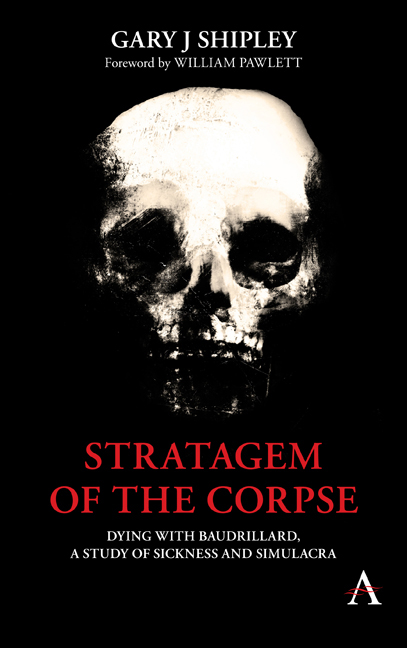Book contents
- Frontmatter
- Dedication
- Contents
- Acknowledgements
- Foreword by Pawletts William
- Introduction
- Chapter 1 On Decay and Other Synthetics
- Chapter 2 Stratagem of the Corpse
- Chapter 3 A Bleak Non-History of History
- Chapter 4 The Hyperactivity of Objects
- Chapter 5 The Unnamable Catastrophe
- Chapter 6 A Cure for Vertigo
- Chapter 7 Chance and the Temporality of Death
- Chapter 8 The Possibility of Nihilism
- Chapter 9 Smell-O-Vision: The Murder Show
- Chapter 10 The Evil Death
- Chapter 11 False Confessions and the Madness of Death: Making Death Speak
- Chapter 12 Black Light: Nigredo and Catastrophe
- Appendix 1 Whiteout: Spatiotemporal Interstices, Necropresence and the Immortality of Now
- Appendix 2 Pure Dreaming: Radicalized and Vermiculated Thought, or Death as an Earworm
- Appendix 3 The Non-Existence of the Scream
- Index
Chapter 3 - A Bleak Non-History of History
Published online by Cambridge University Press: 20 February 2020
- Frontmatter
- Dedication
- Contents
- Acknowledgements
- Foreword by Pawletts William
- Introduction
- Chapter 1 On Decay and Other Synthetics
- Chapter 2 Stratagem of the Corpse
- Chapter 3 A Bleak Non-History of History
- Chapter 4 The Hyperactivity of Objects
- Chapter 5 The Unnamable Catastrophe
- Chapter 6 A Cure for Vertigo
- Chapter 7 Chance and the Temporality of Death
- Chapter 8 The Possibility of Nihilism
- Chapter 9 Smell-O-Vision: The Murder Show
- Chapter 10 The Evil Death
- Chapter 11 False Confessions and the Madness of Death: Making Death Speak
- Chapter 12 Black Light: Nigredo and Catastrophe
- Appendix 1 Whiteout: Spatiotemporal Interstices, Necropresence and the Immortality of Now
- Appendix 2 Pure Dreaming: Radicalized and Vermiculated Thought, or Death as an Earworm
- Appendix 3 The Non-Existence of the Scream
- Index
Summary
History is the future.
In keeping with Baudrillard's proclamation concerning our retroaestheticization of fascism, we will proceed to retro-aestheticize fundamentalist terror. And even now it's easy to see that the work is already underway, for the theme is and will be the same – for like everything else it will be a remake – and that theme will not be the one displayed on the surface (people really believed such things and were prepared to act on them), but instead an undercurrent, there in all retro indulgences (there really were people who had convictions, that believed things – anything at all – to the point that life itself took a supplementary role): ‘The death of a terrorist is not a suicide: it is an effigy of the virtual death that the system inflicts on itself.’
If the cinema ‘only resurrects ghosts’, its descendant (the video game) only resurrects us. And remember that the possibility for genuine newness being zero is not just a platitude, it is the platitude. The preciseness, even of what remains vague and seemingly indeterminate, is what marks the claustrophobia of birth onwards. There is no room for error, beyond the mistake that there is anything at all.
All talk of resurrection is misleading, for it implies that the first birth was not itself a resurrection, that originality arrived as if out of nothing, out of nowhere. Everything is living again, even when it is living for the first time, or else I’m to imagine that existence can escape its own mythopoeia. It is quicksand all the way down, and all the way up as well. The only stability is moving in order not to move. All action, all impetus to act, is inescapably nostalgic. If the autochthonic were ever to occur it would be an act of terrorism unlike any seen or envisaged. ‘Terrorism is always that of the real’, because humanity is nothing if it is not an obfuscator of what is. The pessimist tries to make us see the extent of the terror, how our whole lives are intricately played out variations on an essential cringe, and its attendant analgesic utilities. And here we have the reason for God: a placeholder for the violence of the possibility of any genuine source.
- Type
- Chapter
- Information
- Stratagem of the CorpseDying with Baudrillard, a Study of Sickness and Simulacra, pp. 33 - 52Publisher: Anthem PressPrint publication year: 2020



